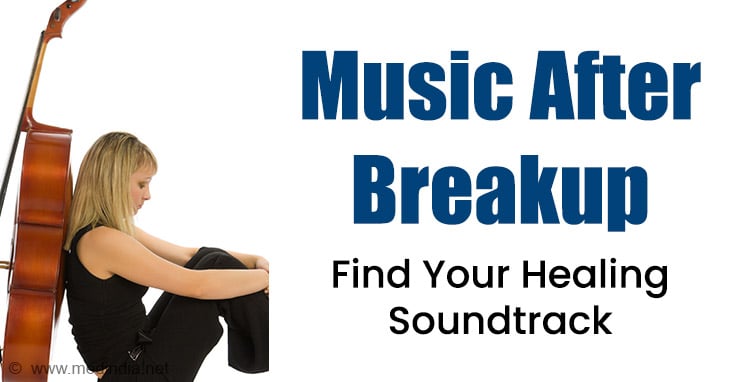Unhappy playlists after heartbreak? Science says for some, it could deepen ache as a substitute of therapeutic it- discover your healthiest playlist!
- Listening to unhappy music after a breakup might lengthen misery in neurotic people
- Utilizing music in an adaptive means helps restoration, whereas rumination with music can do hurt
- Understanding your persona is essential to discovering useful musical coping methods
Romantic breakups are powerful at any age. For a lot of, turning to music, particularly tear-jerking ballads or moody playlists, looks like a secure escape or an emotional launch. However new analysis suggests the story is extra complicated, particularly for individuals who rating excessive within the persona trait known as neuroticism (1✔ ✔Trusted Supply
Adaptive or maladaptive music-listening coping technique: How does neuroticism use music after experiencing a romantic relationship breakup?
). Whereas music might be supportive, it might probably typically really intensify heartache for these people.
Commercial
Does Music Assist to Cope With a Breakup?
We use music for extra than simply leisure. It is a key means individuals address emotions, particularly after upsetting occasions like a breakup. Some hearken to music to distract themselves, some use it to mirror or vent, and others search for consolation or to specific what they’ll’t say out loud.
A research revealed in PLOS ONE in 2024 explored how younger adults used music to manage after a romantic breakup, with particular concentrate on neuroticism, a persona trait linked with temper swings, sensitivity, and emotional instability. The analysis discovered that folks excessive in neuroticism had been extra doubtless to make use of music as an emotional instrument, however not at all times to their profit.
Commercial
What’s Neuroticism?
Neuroticism entails a bent to really feel unfavourable feelings strongly and ceaselessly. Folks excessive on this trait usually tend to fear, really feel anxious, or battle to manage their moods. Analysis reveals neurotic people are particularly vulnerable to the ache of romantic breakups and will have a more durable time transferring on.
Commercial
Adaptive vs. Maladaptive Music Listening
Music as a coping technique is available in two kinds:
- Adaptive listening: Utilizing music to assist emotional stability, promote a optimistic outlook, or encourage wholesome reflection and resilience.
- Maladaptive listening: Utilizing music- typically unhappy, offended, or intense songs- to wallow, vent, or keep away from feelings, which may improve misery or lengthen unfavourable emotions.

The PLOS ONE research revealed that neurotic people had been extra more likely to interact in maladaptive listening. Slightly than fostering therapeutic, this sample typically deepened unhappiness and hindered restoration after a breakup.
When Unhappy Songs Make It Worse
In a research involving 389 faculty college students who had skilled at the least one breakup prior to now 5 years, individuals crammed out questionnaires assessing their persona traits and the way they used music to deal with emotional misery. The findings confirmed that college students with increased ranges of neuroticism had been extra more likely to expertise stronger unfavourable feelings after their breakup and tended to make use of maladaptive music listening methods, akin to repeatedly listening to unhappy songs, which solely deepened their misery. Statistical evaluation indicated that any such maladaptive music listening partly defined why neurotic people discovered it more durable to get better emotionally, whereas extra adaptive approaches to music listening supplied little reduction for these with intense heartbreak
In sensible phrases, unhappy music may really feel comforting at first, however for individuals who ruminate or really feel feelings deeply, it could really make issues worse in the long term. These findings echo earlier analysis displaying that how we use music can work for or in opposition to our psychological well being after loss or trauma.
The research passed off in China, the place open emotional expression is commonly discouraged in conventional tradition. This might imply that some people, particularly these with neurotic tendencies, might internalize ache and use music as a protect, additional amplifying misery.
Discover the Proper Musical Coping Technique
- Combine up your playlist: Think about balancing unhappy songs with uplifting or calming tracks.
- Discover patterns: In the event you at all times really feel worse after an emotional music session, strive altering your musical habits or setting limits on listening time.
- Replicate, don’t ruminate: Use music for wholesome reflection, to not relive ache time and again.
- Search assist: If unhappiness after a breakup lingers or intensifies, discuss with mates or a psychological well being skilled.
Music is a potent instrument for expressing and managing feelings after a heartbreak. However particularly for individuals who naturally really feel issues extra intensely, there’s a positive line the place music begins to harm greater than heal. Understanding how your persona influences coping may help you select methods that genuinely assist your emotional restoration.
Reference:
- Adaptive or maladaptive music-listening coping technique: How does neuroticism use music after experiencing a romantic relationship breakup? – (https://journals.plos.org/plosone/article?id=10.1371/journal.pone.0331373)
Supply-Medindia